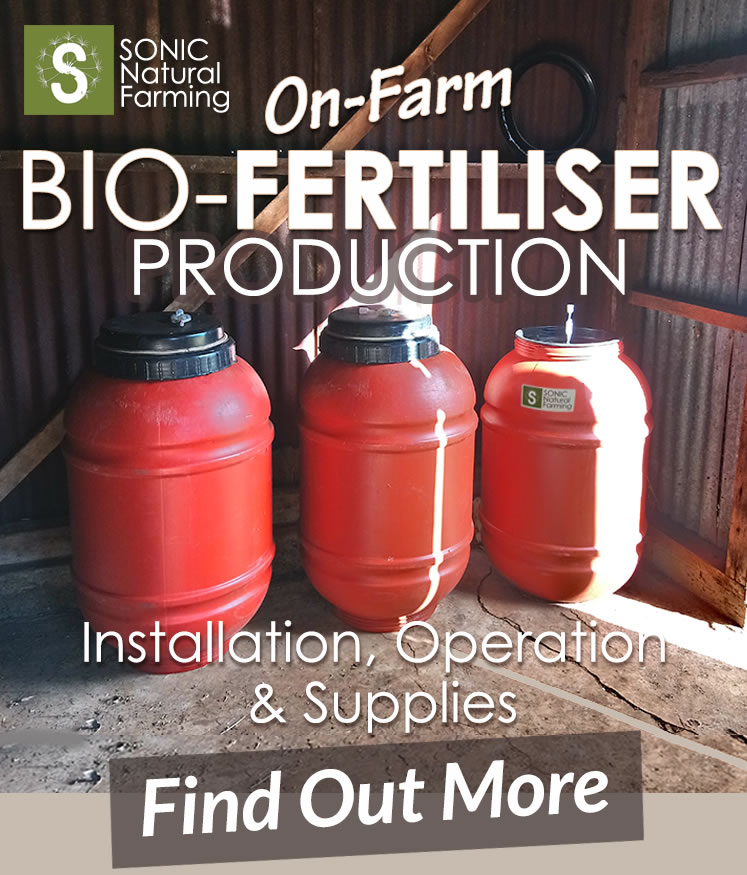Biological Fertiliser Uses in Regenerative Orchard Farming
Regenerative orchard farming focuses primarily on improving soil health. One innovative approach to achieve this is through the use of Biological Fertilisers. Biofertilisers go through a cold fermentation process to produce a chelated mineral concentrate that both mineralises and stimulates microbial activity in the soil.
It All Starts In The Soil
Maintaining soil fertility is crucial for the long-term health and immunity of trees in orchards. Many Australian orchardists today focus on building biologically active soils through the use of organic and biological fertilisers.
Healthy, fertile soils provide trees with the necessary nutrients, microbial diversity, and structure to thrive. This helps trees develop strong root systems and robust immune responses to pests and diseases. In contrast, soils depleted of organic matter and microbial life lead to nutrient deficiencies and weaker trees.
Regenerative orchard management such as cover cropping, composting, mulching, and avoiding synthetic chemicals are key to cultivating fertile, living soils
This holistic approach supports the entire orchard ecosystem and ensures the long-term sustainability of the operation.
Orchardists at Central Coast, NSW, grow avocados using regenerative farming practices and SONIC Fish and Seaweed Biofertiliser, (above image).
Optimised Nutrient Uptake
Orchard farmers are increasingly turning to regenerative farming practices that leverage the power of beneficial microorganisms to improve nutrient uptake in their trees. By using Biological Fertilisers and supporting the natural microbial ecosystem, growers can enhance the quality and nutrient density of their fruit without relying on synthetic inputs.
The relationship between trees and soil microbes is a symbiotic one. Certain bacteria and fungi form cooperative associations with plant roots, helping them absorb essential nutrients from the soil more efficiently. This not only nourishes the trees but also results in fruit that is richer in genuine organic vitamins, minerals, and other beneficial compounds.
The result of regenerative orchard farming is produce that is nutritionally dense, providing greater health qualities to consumers seeking wholesome foods
Through regenerative orchard farming techniques, that prioritise soil health, orchardists can cultivate thriving microbial communities that aid in nutrient cycling and tree immunity.
Tree Strength and Resilience
Biological inputs assist the introduction of beneficial microorganisms, such as bacteria, fungi, and other soil-dwelling organisms, into the soil ecosystem. These organisms play a crucial role in improving soil health and providing plant immunity.
By incorporating Biological soil amendments into regenerative and organic orchard farming practices, orchardists can create a thriving ecosystem underground.
This enhanced biology in the soil promotes healthier tree growth and development. Trees become less susceptible to disease as they are better equipped with natural defense mechanisms provided by a diverse microbial community.
How to Use Biological Fertiliser in Regenerative Orchard Farming
SONIC Natural Farming Biological Fertilisers are concentrate products requiring dilution. Adjust rate to suit growth stage. Use lower rate for early growth and higher for advanced crop stages.
Seed Inoculant: 5L per 1 tonne of seed
Orchards (foliar and soil): 5-10L/ha













